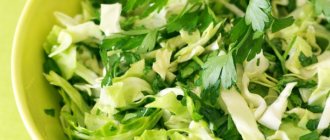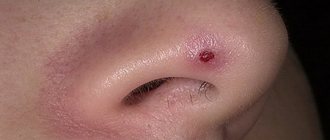When eating certain fruits, in most cases people simply spit them out and throw away their seeds, without even thinking about the properties that they may have. Few people know that fruit seeds usually contain a rich, highly active biological reserve of various microelements. For example, grape seeds, the health benefits and harms of which have been known since ancient times. When we get rid of grape seeds, we don’t even think about the healing power they contain.
What are grape seeds made of?
In fact, the pulp of grape berries contains only about 10% of the nutrients necessary for the body. All the benefits and harms of these berries are hidden in their seeds. This benefit consists of a huge amount of proanthocyanidins - very powerful antioxidants that have a much greater effect than some microelements, for example, vitamins E or C. In addition, they contain a lot of natural oils that strengthen and rejuvenate the body's cells.
The benefits of grape seeds for the body are determined by the huge content of phytoestrogens - substances similar in structure to steroid hormones, known to us under the common name estrogen. The lack of this hormone in the female body can negatively affect not only a woman’s appearance, but also her health.
Phytoestrogens present in grape seeds can protect women from unpleasant symptoms that occur during menopause.
Grapeseed oil: rules for selection and storage
You should count on beneficial effects when purchasing a quality product and subject to following all recommendations for use and using the product for the appropriate purpose, which is indicated on the label of the product. Criteria:
- record of compliance with GOST requirements;
- clarity and readability of inscriptions;
- adequacy of shelf life - no more than a year;
- not too low price;
- clear oily liquid inside;
- containers made of glass, preferably darkened;
- the aroma is similar to nutty;
- Presence of sediment at the bottom is allowed.
Inside, the contents can be either light yellow or dark green. After opening, the container should be hermetically sealed and stored in a cool place, protected from direct light (refrigerator).
When consumed in moderation (and without an allergy to grapes), grape seed oil does not harm the body
What are the health benefits of grape seeds?
In alternative medicine, the life-giving properties of grape seeds are well known, the benefits and harms of which are widely used in the treatment of certain diseases. It is believed that infusions and decoctions made on their basis help with:
- symptoms of hypertension, hypotension and other circulatory disorders;
- diseases of the bronchopulmonary system, including colds and ARVI;
- decreased immunity, loss of strength and vitality of the body;
- inflammatory processes in the gastrointestinal tract and constipation;
- liver diseases;
- diseases of the musculoskeletal system.
The benefits and harms of grape seeds are due to the large amount of proanthocyanidins they contain. When used regularly in the diet, these substances help lower blood pressure.
Grape seeds are widely used in folk medicine
An interesting fact is that depending on the plant variety, the benefits and harms of grape seeds for the body will be different. Different types of this crop may have different chemical compositions of seeds, differing in their vitamin and mineral set. The energy value of both the berry pulp and the grape seed itself depends on the grade. The benefits and harms of the fruits of “wild” plants are more pronounced than those of selected varieties bred for industrial cultivation.
Of course, we must not forget that the harm and benefits of grape seeds for health may not always be obvious. Excessive consumption of grape kernels can cause harm to the body if you chew them poorly.
The negative impact of these seeds is that they can:
- cause intestinal irritation;
- cause allergies;
- provoke exacerbation of chronic diseases of the gastrointestinal tract.
Products made from crushed grains must be consumed with some caution, otherwise, instead of the expected benefits of grape seeds, the harm will be very noticeable. How to use ginger so that its beneficial properties are preserved, how it is beneficial for the immune system, and how you can prepare a lemon-ginger mixture with honey.
Benefits of grape seeds
Grape seeds are useful due to their medicinal properties:
- have a positive effect on blood clotting;
- benefit in normalizing the functioning of the heart and blood vessels;
- prevent the development of varicose veins;
- strengthen blood vessels;
- prevent the development of blood clots;
- prevent heart attacks and strokes;
- act as a prophylactic against varicose veins.
Although the list of beneficial properties is impressive, the product may be harmful for some people. For example, if you are allergic to raw materials.
How can it be used?
Many believe that grape kernel oil, the benefits and harms of which have been proven by numerous studies, has found application exclusively in cosmetology. However, today it can often be found in recipes for many dishes. A transparent, yellowish liquid, rich in polyunsaturated fats, oleic acid and vitamin E, looks very similar to ordinary vegetable oil. It has a specific taste and unobtrusive nutty aroma.
This is what oil made from grape seeds looks like
Eating
Since grape oil has a high boiling point and begins to smoke only at 216⁰C, some chefs recommend it as ideal for frying. Meanwhile, many experts argue that when heated, the beneficial substances included in its composition form compounds that can cause harm to the body.
To ensure that grape seed oil, the benefits of which are generally recognized throughout the world, does not cause harm to health, it must be consumed only in its raw form.
In many countries, grape oil is traditionally used in cooking. It is used in preparation:
- homemade mayonnaise;
- all kinds of salad dressings;
- sauces and extracts from herbs and garlic.
The benefit of grape seeds also lies in the fact that their oil is suitable for preparing marinades, meat and fish dishes.
In the form of drinks and infusions
What other benefits could there be from grape seeds? To experience the full range of positive health benefits, you need to try infusions and decoctions from these kernels. It is easy to purchase a ready-made extract or extract from these seeds at a pharmacy or prepare healing drinks with their addition yourself. However, not all nutritionists recommend such an elixir to their patients.
Nevertheless, grape seeds, the benefits and harm to the body from the effects of which still cause a dispute between traditional medicine and folk medicine, are widely used by connoisseurs of natural products: they are used to prepare alcoholic tinctures and water decoctions.
People who drink such drinks note their benefits and effect in treatment:
- cholecystitis and urolithiasis;
- gout and a number of diseases of the musculoskeletal system;
- often used as a diuretic and tonic.
The most widely used are decoctions and infusions that contain grape seeds; their benefits and harms have been demonstrated by everyday practice of use for centuries.
As a cosmetic
The benefits of grape seeds are well known in the beauty industry; it is not without reason that the oil extracted from these seeds is found in most cosmetic and cosmetic products. It is added to nourishing and rejuvenating creams, tonics for sensitive skin, to restorative shampoos for dry hair, and is also used in the production of massage products.
In home cosmetic procedures, grape seeds, the benefits and harms of which have long been known, have found their application in the preparation of anti-aging masks for different skin types. Recipes containing this product have never harmed anyone. On the contrary, they are valued for their excellent anti-inflammatory and regenerating properties.
Using crushed kernels, various scrubbing procedures and gentle facial peels are performed. However, in order not to cause harm to the skin and not cause allergic reactions, such effects should not be used too often.
Infusions prepared with the addition of these seeds are used to rinse hair after shampooing. It is believed that there will be no harm from adding grape seeds, but the hair will become smoother, silkier and more manageable.
Oils extracted from grape seeds, the benefits and harms of which are due to centuries-old use in home cosmetic procedures, are added to ready-made face and body creams to enhance their effect.
What are the benefits of black and white grapes with seeds?
Brightly colored grape varieties are considered more valuable. What are the benefits of black grapes with seeds if they contain the same amount of sugars, phytosterols, vitamins and plant fibers as white grapes? The only difference is that black berries are a source of anthocyanins, substances that have healing properties.
Black grape seeds are healthier than white ones.
Anthocyanins are powerful antioxidants that protect the body from various damaging factors. They block substances that have a destructive effect on cells and prevent the development of cancerous tumors.
How much can you eat without harming your body?
When eating grapes, the seeds are difficult to chew thoroughly. Harm to grape seeds may be due to large particles entering the gastrointestinal tract.
For more effective absorption, it is advisable to use them in the following form:
- Dried and crushed kernels can be added 1 hour at a time. spoon into water or any other drink. If you take this mixture three times a day for a month, it will not cause harm, but will only improve your health.
- You can purchase ready-made capsules or tablets at the pharmacy and take them according to the recommended regimen.
- Grapeseed oil is usually added to salads. If taken as a separate product, the health benefits will come from consuming one teaspoon per day for two weeks. Then, in order not to cause harm to health, you need to take a break and repeat the course a month later.
People who prefer to consume natural products know the benefits of grape seeds and have been using them in everyday life for a long time. There are countless possibilities for using products created from grape kernels.
They are widely used in:
- cooking;
- cosmetology and in the manufacture of cosmetics;
- traditional and alternative medicine.
One gets the feeling that this is a miracle remedy that brings comprehensive benefits to humanity.
You might be interested in reading about how many calories are in mangoes and how they are used in cosmetology and cooking.
Beneficial features
Reduces blood pressure
There have been several studies done on the effects of grape seed extract on high blood pressure.
A meta-analysis of 16 studies involving a total of 810 people with high blood pressure or a high risk for the condition found that taking 100–2,000 mg of grape seed extract daily reduced systolic blood pressure (the top reading) by an average of 6 .08 mm Hg, and diastolic (lower value) - by 2.8 mm Hg.
The greatest improvement was observed in subjects under 50 years of age diagnosed with obesity or other metabolic disorders.
The most encouraging results were recorded at a lower dosage: 100-800 mg daily for 8-16 weeks. ()
Another study of 29 adults with high blood pressure found that taking 300 mg of grape seed extract daily for six weeks reduced systolic blood pressure by 5.6% and diastolic blood pressure by 4.7%. ()
Conclusion:
Grape seed extract helps lower blood pressure, particularly in young and middle-aged people and obese patients.
Improves blood flow
Some studies note that grape seed extract may help improve blood flow.
An eight-week study of 17 healthy postmenopausal women found that taking 400 mg of grape seed extract daily helped thin the blood and potentially reduce the risk of blood clots. ()
An additional study conducted in eight healthy young women assessed the effectiveness of a single 400 mg dose of proanthocyanidin from grape seed extract followed by six hours of sitting. According to the results, scientists noted a 70% reduction in leg swelling compared to subjects who did not receive grape seed extract.
In the same study, eight other girls who received proanthocyanidins from grape seed extract daily for 14 days had 40% less leg swelling after six hours of sitting. ()
Conclusion:
Research has shown that grape seed extract improves blood flow and reduces the risk of blood clots, which may be beneficial for those with circulation problems.
Reduces oxidative stress
Elevated levels of LDL (“bad” cholesterol) in the blood are one of the risk factors for cardiovascular disease.
Elevated levels of LDL (“bad” cholesterol) in the blood are one of the risk factors for cardiovascular disease.
Oxidation of LDL significantly increases risk and is a key factor in atherosclerosis, or the accumulation of fatty plaque in the arteries. ()
In several animal studies, scientists found that taking grape seed extract reduced LDL oxidation caused by a high-fat diet. (, , )
A number of studies have shown similar effects of this supplement in humans. (, ).
In eight healthy people whose diet contained large amounts of fatty foods, 300 mg of grape seed extract inhibited the oxidation of fats in the blood. In comparison, in the group that did not receive this supplement, oxidation increased by 150%. ()
In another study of 61 healthy adults, taking 400 mg of grape seed extract resulted in a 13.9% reduction in oxidized LDL levels. However, it should be noted that these results were not replicated in another similar study. (, )
Additionally, a study of 87 patients undergoing heart surgery found that taking 400 mg of grape seed extract the day before surgery significantly reduced oxidative stress. This suggests that grape seed extract may protect the heart from further damage. ()
Conclusion:
Grape seed extract helps reduce the risk of cardiovascular disease by slowing the oxidation of “bad” cholesterol (LDL) and reducing the oxidation of heart tissue during times of stress.
Improves collagen production and strengthens bones
Increasing the intake of flavonoids has been proven to improve collagen synthesis and osteogenesis.
Being a rich source of flavonoids, grape seed extract helps increase bone density and strength.
Animal studies have shown that adding grape seed extract to low-, standard-, and high-calcium diets increased bone density, strength, and mineral content. (, )
Rheumatoid arthritis is an autoimmune disease that is characterized by severe inflammation and destruction of bones and joints.
Animal studies have shown that grape seed extract can suppress bone destruction caused by inflammatory autoimmune arthritis. (, , )
Also in studies, grape seed extract significantly reduced pain, bone growth, and joint damage in mice with osteoarthritis by increasing collagen synthesis and reducing cartilage loss. ()
Despite promising results from animal studies, there are currently few clinical studies confirming the same effect in humans.
Conclusion:
Animal studies have shown that grape seed extract helps with joint diseases and also stimulates collagen production. However, there are still too few similar studies in humans.
Supports brain health in old age
Due to their antioxidant and anti-inflammatory properties, flavonoids are thought to help slow or delay the onset of neurodegenerative diseases such as Alzheimer's disease. ()
One of the components of grape seed extract is gallic acid, which has been shown in laboratory and animal studies to slow the formation of beta-amyloid peptide fibrils. ()
Alzheimer's disease is characterized by groups of beta-amyloid proteins. ()
Animal studies have found that grape seed extract improves the antioxidant and cognitive status of the brain, preventing memory loss, reducing brain damage and reducing amyloid plaques. (, , , )
A 12-week study of 111 healthy older adults found that taking 150 mg of grape seed extract daily improved attention and language, as well as immediate and delayed memory. ()
However, there are too few clinical studies on the effects of grape seed extract on adults with pre-existing memory and cognitive impairment at this stage.
Conclusion:
Grape seed extract has the potential to slow down many symptoms of degenerative diseases and cognitive disorders. However, more clinical studies are required to confirm this hypothesis.
Improves kidney function
Our kidneys are especially sensitive to oxidative damage, which is often irreversible.
Animal studies have shown that grape seed extract may reduce kidney damage and improve kidney function by reducing oxidative stress and inflammatory damage. (, , )
In one study, 23 people with chronic kidney failure received 2 grams of grape seed extract daily for six months. The results of this group were evaluated in comparison with a second group that did not receive similar supplements. At the end of the study, the group receiving grape seed extract experienced a 3% decrease in urinary protein levels and a 9% improvement in kidney filtration rates.
That is, the kidneys of these patients were much better at filtering urine compared to the control group. ()
Conclusion:
Grape seed extract protects the body from damage caused by oxidative stress and inflammation, thus helping to improve kidney health.
Reduces the growth of infections
Grape seed extract shows promising antibacterial and antifungal properties.
Research has shown that grape seed extract slows the growth of common foodborne bacterial infections, including Campylobacter, E. coli and Shiga toxin, which are often the cause of severe food poisoning and stomach upsets. (, )
Laboratory studies have shown that grape seed extract can inhibit the growth of 43 strains of antibiotic-resistant Staphylococcus aureus bacteria. ()
Candida is a common yeast-like fungus that sometimes leads to yeast overgrowth or thrush. In traditional medicine, grape seed extract is widely known as a natural remedy for thrush.
In one study, mice infected with vaginal candidiasis were given an intravaginal solution of grape seed extract every other day for eight days. On the fifth day of the study, an effective slowdown in the rate of infection spread was observed, and on the 8th day the infection resolved. ()
Unfortunately, there are still very few clinical studies of the effect of grape seed extract on the growth of infections in the human body.
Conclusion:
Grape seed extract can keep a variety of bacteria at bay, protecting the body from antibiotic-resistant strains of bacteria, food-borne bacterial infections, as well as fungal infections such as candidiasis.
Reduces the risk of cancer
The causes of cancer are extremely complex. However, the main characteristic of this disease is DNA damage.
High intakes of antioxidants, such as flavonoids and proanthocyanidins, have been linked to a lower risk of developing various types of cancer. ()
In laboratory studies, the antioxidant activity of grape seed extract has the potential to suppress breast, lung, gastric, liver, prostate, pancreatic, and oral squamous cell carcinoma cell lines. (, , , )
Animal studies have shown that grape seed extract can enhance the effectiveness of various types of chemotherapy. (, , )
Evidence suggests that grape seed extract protects the body from oxidative stress and hepatotoxicity while simultaneously targeting chemotherapy drugs against malignant cancer cells. (, , )
A review of 41 animal studies found that in all but one study, either grape seed extract or proanthocyanidins reduced cancer-related toxicity and damage. ()
However, it should be taken into account that this anticancer and chemopreventive potential of grape seed extract and the proanthocyanidins it contains cannot be directly attributed to patients with cancer. More relevant human studies are required.
Conclusion:
In laboratory studies, grape seed extract has demonstrated the ability to inhibit cancer in various types of cancer cells. In addition, animal studies have shown that grape seed extract reduces chemotherapy-induced toxicity without negatively affecting the treatment itself. However, more clinical studies in humans are required to confirm these results.
Protects the liver
Our liver plays an important role in eliminating harmful compounds that enter the body through medications, viral infections, exposure to air pollutants, alcohol, and more.
Studies have shown that grape seed extract has a protective effect on the liver.
In laboratory studies, grape seed extract helped reduce inflammation, recycle antioxidants, and protect cells from free radical damage resulting from exposure to toxic substances. (, , )
The liver enzyme alanine aminotransferase is a key indicator of liver toxicity. That is, if the liver is damaged, the level of this enzyme increases. ()
In one study, 15 people with non-alcoholic fatty liver disease and associated high alanine aminotransferase levels were given grape seed extract for three months. Experts checked liver enzyme levels monthly and compared the results with data from a group that received 2 grams of vitamin C daily.
After three months, the group receiving grape seed extract experienced a 46% decrease in alanine aminotransferase levels, while the changes were much less noticeable in the group receiving vitamin C. ()
Conclusion:
Grape seed extract protects the liver from toxicity and damage caused by medications. However, more clinical studies are required to confirm this hypothesis.
Improves wound healing and appearance
A number of animal studies have shown that grape seed extract may promote better wound healing. (, , )
Results from human studies also look promising.
35 healthy adults undergoing minor surgery received either 2% grape seed extract cream or a placebo. It took eight days for the small wounds to heal completely for the group receiving grape seed extract cream, while it took 14 for the placebo group.
Most likely, this is due to the high content of proanthocyanidins in the grape seed extract, which promote the release of growth factors in the skin. ()
Another 8-week study of 110 healthy young adults found that a cream with 2% grape seed extract improved the appearance and elasticity of the skin, regulating sebum, which helped reduce acne and help skin look better. ()
Conclusion:
Creams with grape seed extract increase growth factors in the skin, which promotes better wound healing.











